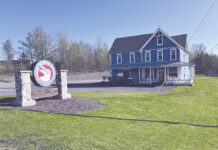“The real voyage of discovery consists not in seeking new landscapes but in having new eyes.”
— Marcel Proust
I think I’ve done more research on Cuba than I have for any topic I’ve written about in my ag career. And yet I still don’t have a clue.
Oh, I know what’s on the exterior, what the history books say and current experts proclaim. I know what I saw on my short trip there last month, what I heard and wrote down. But what I don’t know that I got a true picture of what the average Cuban faces. I don’t know is what’s real.
Note: Editor Susan Crowell was selected to travel to Cuba in September with a group of 20 agricultural communicators. The trip was coordinated by the American Agricultural Editors Association, and she received a partial travel stipend from the association’s Professional Improvement Foundation to participate. Read more:
The paradox of Cuba
Cuban agriculture at a glance
The Cuban ag reality
For almost 60 years, the government has dictated life in Cuba — where you worked, how much you got paid, what food was available, where and if you could travel.
If you were a farmer, you were basically just a farm worker, until recent years when reforms allowed individuals to get a long-term lease on a small plot of land. But even if small landowners banded together in a cooperative for either production or marketing, inputs were limited and you planted what you were given, not what you wanted to plant.
For those walking that new tightrope of self-employment and entrepreneurship, it’s almost like the freedom of choice is dangled over their heads, just out of reach. See what you can do when you work hard? And so they work.
One source told us an average government salary is about $25/months, but you need $250/month just to meet basic necessities for a family of three in Havana. “It’s not easy,” he said.
Obama’s visit seemed to light a spark, kindle a hope, that the Cuban people can be empowered to determine their own future.

“… the Cuban and American people share common values in their own lives,” President Obama said during his March visit. “A sense of patriotism and a sense of pride — a lot of pride. A profound love of family.”
Creo en el pueblo Cubano. Obama added. “I believe in the Cuban people.”
“This is not just a policy of normalizing relations with the Cuban government. The United States of America is normalizing relations with the Cuban people.”
Look to the future with hope, he said, not a false promise or blind optimism, but “hope that is rooted in the future that you can choose and that you can shape, and that you can build for your country.”
Our Cuban guide Meylin got tears in her eyes when she talked about listening to Obama’s speech. She was on the phone with her aunt, translating the speech, and her aunt got emotional as well.
“He is just a great communicator,” she said, unable to put her emotions into words, but it was clear she internalized that message of hope.
Visiting a country for five days doesn’t make me an expert. And, after visiting and researching Cuba, I am convinced of only one thing: It’s complicated.
Here’s the reality: We’re just 90 miles from Cuba. 90 miles. It’s a lot cheaper and easier to ship goods from the U.S. to Cuba, than from Europe or Asia, so it makes sense that opening our doors could increase U.S. exports. And the U.S. ag community has been looking here “with fondness” for a long time, as one U.S. ag official put it.

Will it ever be a major export market? No, probably not. But I think we’d rather be trading with Cuba, and fostering communication and relationships, than have them craft those relationships with Iran or China.
Still, Cuba needs to demonstrate it has a real desire to engage in dialogue or exchange of information. We need to know what’s going on in Cuba when it comes to animal and plant diseases. We need to know more about their technical needs, and conservation efforts.
And, quite frankly, we need more transparency when it comes to what is still be subsidized by the Cuban government, which was the murkiest of territories on our trip. The U.S. needs to understand how Cuban agricultural markets work, and the true role of the central government.
“El futuro de Cuba tiene que estar en las manos del pueblo Cubano,” Obama said. The future of Cuba must be in the hands of the Cuban people.
We don’t want to control, we want to connect. Now it depends on what they want.














